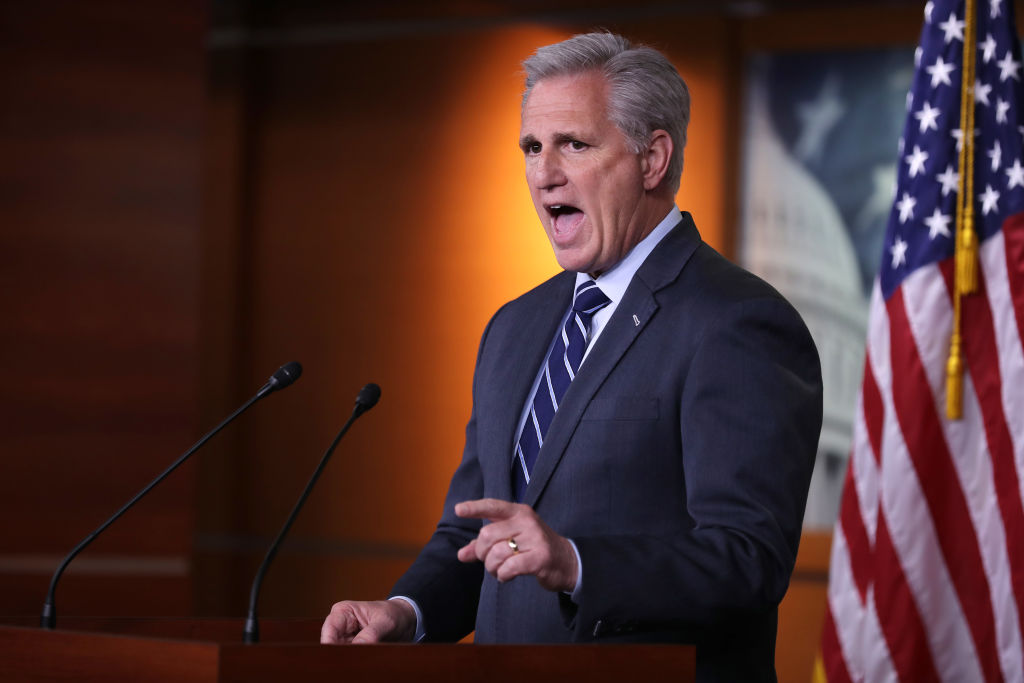Bakersfield Republican Rep. Kevin McCarthy has failed to secure the majority necessary to succeed Nancy Pelosi as speaker of the U.S. House of Representatives after three rounds of voting.
The House adjourned late Tuesday after McCarthy’s bid fell short, throwing the chamber into limbo. McCarthy vowed to press on, though his prospects are unclear.
McCarthy, who had been considered the frontrunner for the post, was nominated by Congresswoman Elise Stefanik of New York.
Although Democrats are unlikely to succeed in electing a speaker in the Republican-controlled chamber, San Bernardino County Congressman Pete Aguilar nominated Democratic House leader Hakeem Jeffries for the post.
Jeffries, the New York Democrat who succeeded Pelosi as the party leader, received votes from all 212 Democrats in the House in the first round. Although his total exceeded McCarthy’s, a candidate must garner a majority of all House members in order to become speaker.
Demonstrating fault lines in the GOP conference, Republican Paul Gosar nominated fellow Arizona Republican Andy Biggs. A former chair of the House Freedom Caucus, Biggs won 10 votes from his fellow hard-right colleagues, denying McCarthy the majority necessary to be elected speaker.
In November, McCarthy defeated Biggs in the vote for Republican leader, by a vote of 188 to 31.
Biggs, who has been referred to the House Ethics Committee for not complying with subpoenas issued by the Jan. 6 Committee, announced he would run for the speakership in December “to break the establishment,” alleging that McCarthy was supported by a more moderate Republican Party old guard.
Biggs emerged as standard bearer of the hard-right, pro-Trump MAGA wing of the Republican Party after Rep. Jim Jordan demurred a nomination by Rep. Matt Gaetz. Jordan was nominated in the second round and garnered 19 votes.
In an unprecedented third ballot before adjourning Tuesday, McCarthy again failed to win a majority, garnering only 202 votes, with Jordan winning 20 votes and Jeffries maintaining 212.
According to a report in The Hill, McCarthy has alleged that Gaetz told colleagues that “he didn’t care” if Democrat Jeffries ended up being speaker during a heated closed-door meeting before the vote.
Although McCarthy has made a number of concessions to more hard-right Republican members, according to a Fox News report, he appears to not have satisfied the Freedom Caucus’ demands over the Republican leadership structure in Congress.
This is the first time since 1923 that a speaker will only be elected after multiple rounds of voting.
Meanwhile, much of the work Congress will have to wait for the leadership fight to end—including the swearing-in of new members like Kevin Mullin, elected in November to represent parts of San Francisco and Daly City.
This sums up the day- still waiting to get sworn in to the U.S. House of Representatives. Until there is a Speaker elected, we are in limbo. Photo credit: Alex Brandon, STF / Associated Press pic.twitter.com/5N19xG0J0x
— Kevin Mullin (@kevinmullin) January 3, 2023
